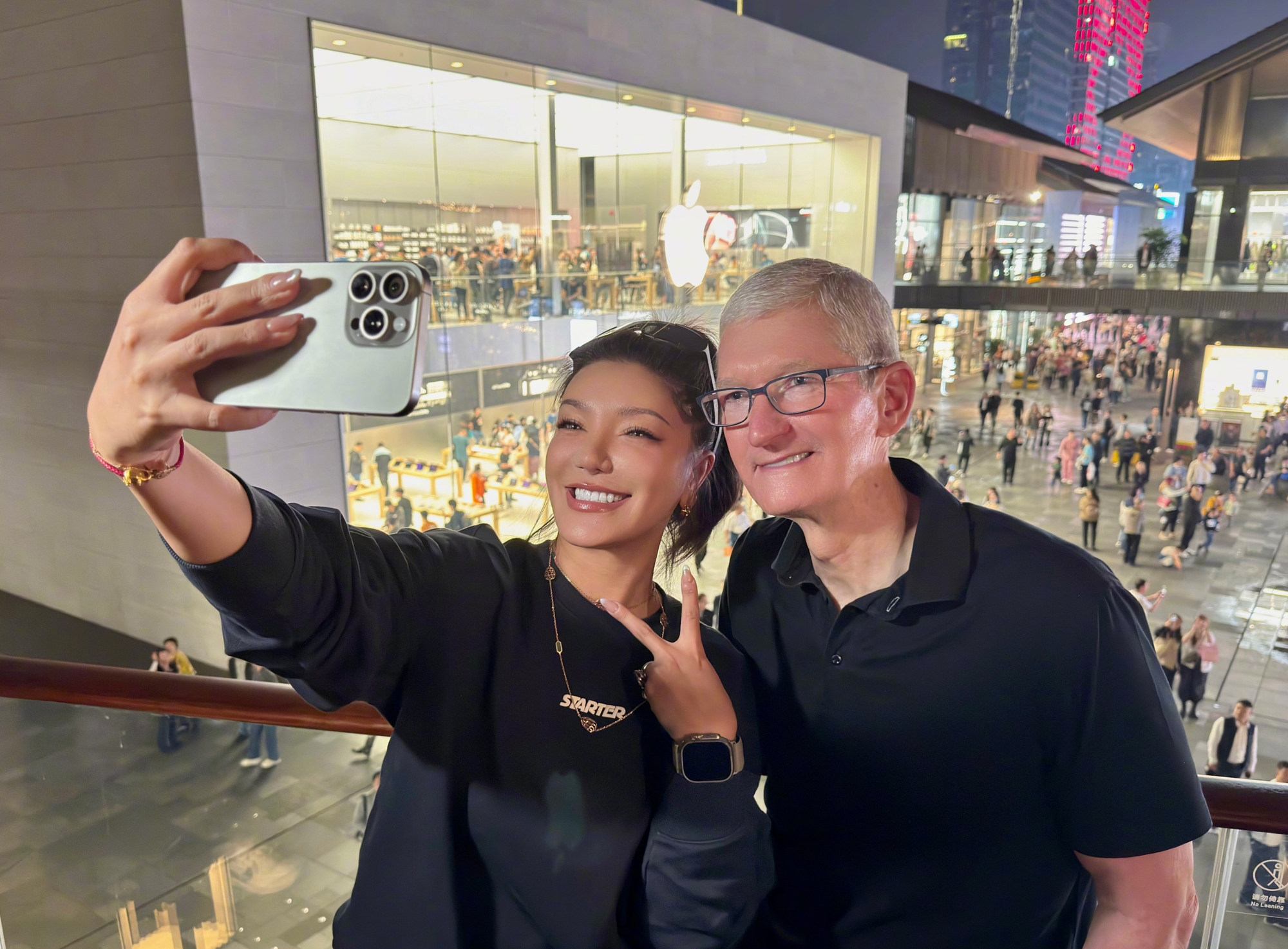
Apple CEO Tim Cook makes second China visit in 2023 amid tough iPhone 15 market and App Store controversy
- Speaking at an Apple Store in Chengdu last week, Cook lauded local developers’ work on apps for the company’s new Vision Pro mixed-reality headset
- Cook’s latest China trip comes at a time when Apple’s iPhone 15 series is facing stiff competition from Huawei’s new 5G handsets
The rest of Cook’s itinerary for this trip to China, where he typically receives red-carpet treatment, is unknown. Apple did not reply to a request for comment.

Cook’s latest China trip, however, comes at a time when the latest iteration of Apple’s iPhone is facing stiff competition in the premium segment of the country’s smartphone market.
“China’s headline numbers for the [iPhone] 15 series are in the red, and this is a reflection of the broader decline in consumer spending [in the country],” said Counterpoint Research analyst Mengmeng Zhang in a market report published on Monday.
The first 17 days of iPhone 15 sales were down 4.5 per cent in China compared to the launch of the iPhone 14 last year, according to data from Counterpoint. Still, the research firm cited shorter pre-holiday shopping periods, coupled with supply mismatches on the iPhone 15 Pro Max, as contributing factors to that performance.
“China’s premium smartphone market is becoming increasingly crowded, and related to that, there’s been some impact from the Mate 60 series from a marketing perspective,” Counterpoint associate director Ethan Qi said on Tuesday.
“All of these things are working together to take some of the shine away from Apple’s lustre during the first few weeks of iPhone 15 sales,” Qi added.
Cook’s latest trip also comes as Apple deals with the country’s strict censorship laws. Apple recently had to toughen its app developer policy in compliance with Chinese regulations, which require apps to receive government approval before these are made available on the company’s Chinese App Store.
Apple had been meeting with regulators to voice concerns about the policies, according to a report from the Wall Street Journal, in efforts that appear to have failed.
In a separate report on Tuesday, Counterpoint said the global smartphone market had recorded its lowest third-quarter sales in a decade, declining 8 per cent year on year.

